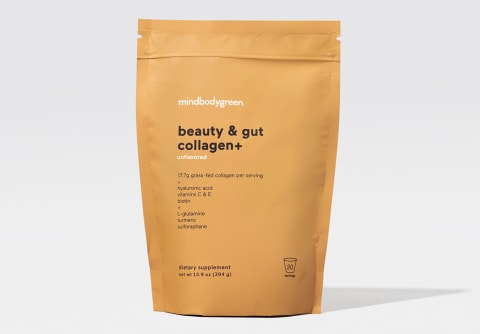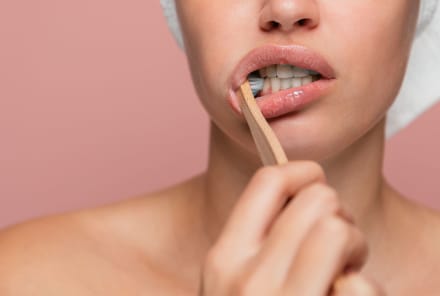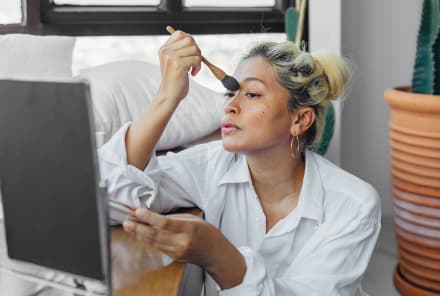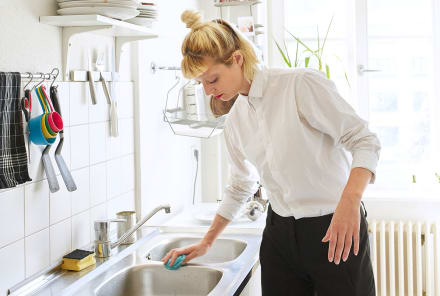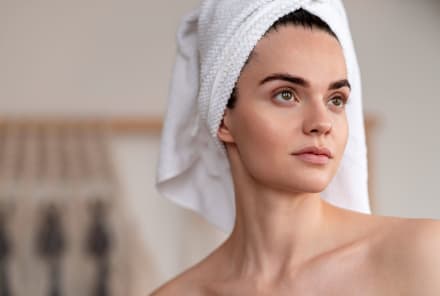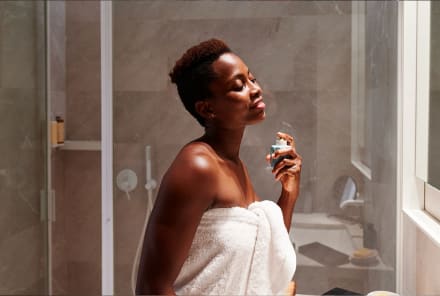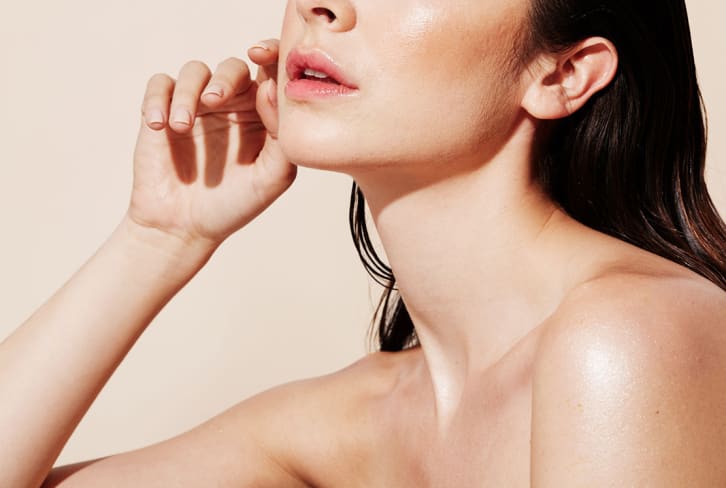Advertisement
Pores Get Bigger With Age — Here's Why & What To Do About It

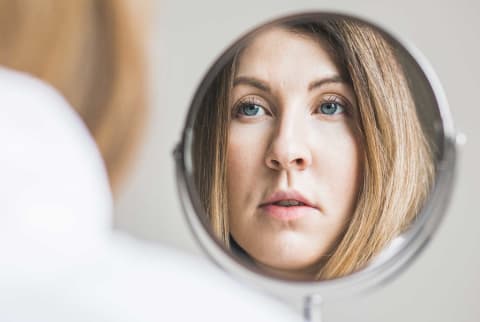
Pores are sometimes wrongfully identified as a young person’s problem: Clogs, sebum overproduction, acne, and enlarged shape are all issues that are typically marketed toward the under-30 crowd.
But pores can actually appear bigger as we age, and it has to do with collagen. Recently I spoke with board-certified dermatologist Muneeb Shah, D.O., the face behind viral sensation Doctorly, during an episode of Clean Beauty School. We spoke about some of the most pressing skin care issues his patients and followers ask him about—of which one was pore size.
“It’s a very common concern. In fact, I have people come into my office just for pores—their only complaint is that their pores look too large and they want to know what can be done to fix them,” he says.
And while we did talk about oil production’s role in the look of enlarged pores, the majority of the conversation centered around age-related pore concerns.
Why pores expand with age & what to do about it
First and foremost, it’s important to note that pores are a normal part of the skin and have very important functions. Unlike dark spots or acne or many other skin “concerns”, it’s not possible to rid the skin of pores—and as Shah says, nor is that something to strive for.
“You can’t eliminate your pores, nor would you want to. They allow oils onto the skin to keep it soft and moisturized,” he says. “You need your pores. You just don’t want them to look too large.”
So, how do they become enlarged? There are two factors. The first cause has to do with sebum overproduction and usually affects those in their tweens, teens, and twenties (although folks of any age can experience oily skin.) As Shah explains, “sebaceous glands dump oil into your pores from underneath. And as your pores start to fill up with oil, makeup, and skin cells that are sloughing off into the pore—so they start to dilate because they're filling up,” he says.
But the type that tends to affect folks with mature skin comes down to, what else, collagen loss.
“Pores are an actual physical structure, an opening of the skin. So, what surrounds that opening? Skin—and when you get deeper into the skin, there’s collagen. So, there are bundles of collagen that surround that pore. It’s squeezing around the pore with the collagen,” he explains. “As those bundles of collagen start to diminish, especially with age, that structural support that’s holding the pore tight will loosen. As you lose that collagen and as you age, your pore will also start to dilate because you’ve lost that collagen.”
In fact, most folks start to lose collagen at some point in their 20s. Essentially the amount of collagen we lose starts to outpace the amount of collagen our body can produce. On average, folks lose about 1% of their collagen each1 year thereafter.
This loss becomes worse during midlife when hormonal shifts result in a dramatic drop in collagen. For example, menopause results in about a 30% drop in collagen over a five year period. And andropause results in a similar decline in collagen and elastin2.
Easy ways to tighten pores as you age
So if you’re experiencing pore issues as you get older, here’s how you can help rebuild that collagen and tighten the pores.
- Wear sunscreen to avoid UV-induced collagen damage
- Incorporate a nighttime retinol to encourage skin cell turnover and upregulate collagen production. Remedy for Pore Size uses a 0.3% encapsulated retinol specifically formulated to address pore concerns.
- Use a daytime vitamin C serum, which can support the collagen synthesis process.
- Try in-office procedures that can boost collagen production, such as lasers or chemical peels.
- Ramp up collagen production internally with collagen-rich foods or supplements.
The takeaway
Pore issues aren’t just for the young—as much as we’d like to leave those pesky dots in our youth. However, due to collagen loss, many folks experience enlarged pores as they get older, too.
To help address loose pore structure, utilize collagen-boosting skin care habits: Wear sunscreen, use retinol, opt for vitamin C during the day, and increase your natural supply internally.
And if all else fails, rest assured: “I think maybe people are looking in the mirror too closely. Most people can’t see your pores as much as you see your pores,” says Shah.
Watch Next
Enjoy some of our favorite clips from classes
Enjoy some of our favorite clips from classes
What Is Meditation?
Mindfulness/Spirituality | Light Watkins
Box Breathing
Mindfulness/Spirituality | Gwen Dittmar
What Breathwork Can Address
Mindfulness/Spirituality | Gwen Dittmar
The 8 Limbs of Yoga - What is Asana?
Yoga | Caley Alyssa
Two Standing Postures to Open Up Tight Hips
Yoga | Caley Alyssa
How Plants Can Optimize Athletic Performance
Nutrition | Rich Roll
What to Eat Before a Workout
Nutrition | Rich Roll
How Ayurveda Helps Us Navigate Modern Life
Nutrition | Sahara Rose
Messages About Love & Relationships
Love & Relationships | Esther Perel
Love Languages
Love & Relationships | Esther Perel
